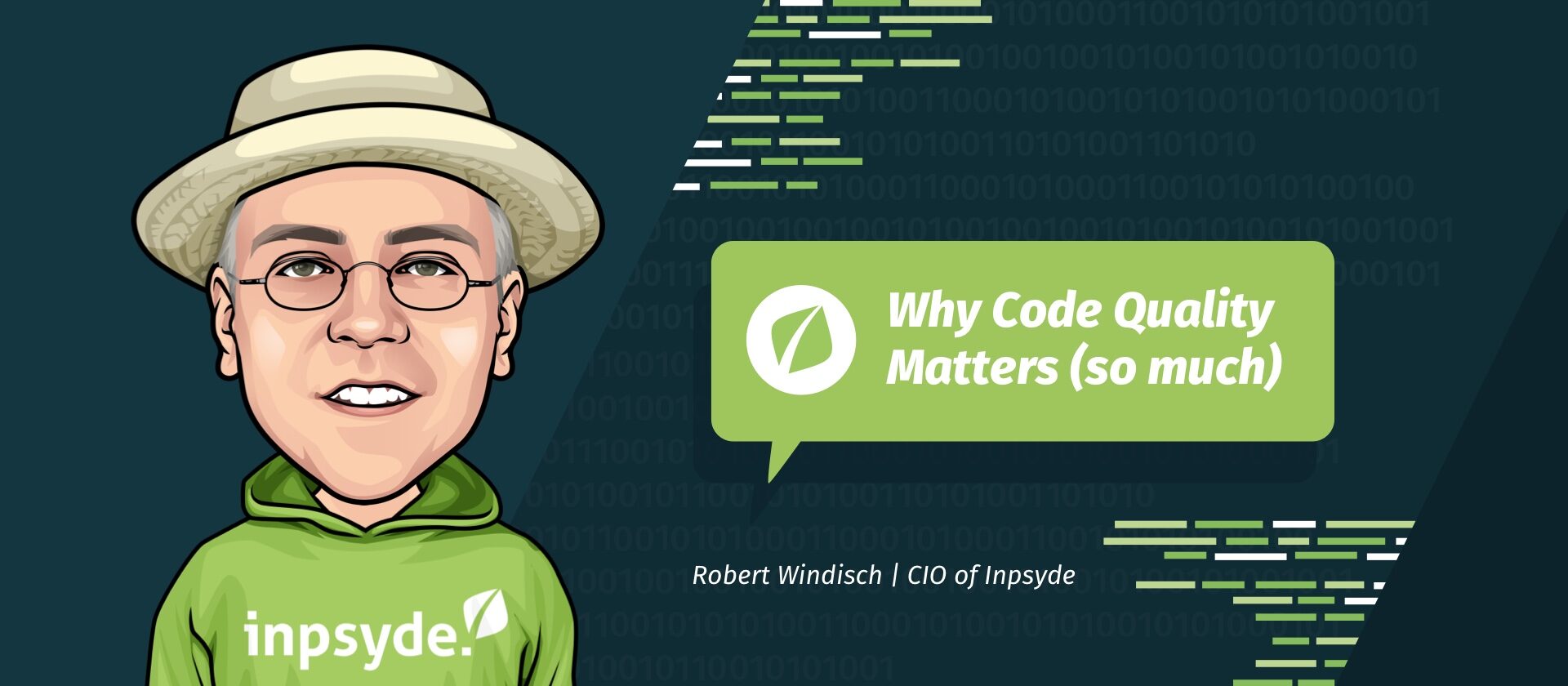As an Enterprise grade agency, Inpsyde develops its WordPress projects with a lot of customization. This is necessary to meet our clients’ special needs and integrate the CMS into the complex IT landscape in which they work. But still, it is sometimes questioned why we can’t just use certain existing plugins and go the extra mile on many things. In this chapter, we want to explain why code quality matters – so much.

This is Robert Windisch
The “Man with the hat“ is an active member and very well-known in the WordPress community and beyond. He has been an Inpsyder since the first day and has seen a wide variety of projects in that time, from small & medium websites to full-sized enterprise projects on a high-level scale.
Let us get to the point: Why is Code Quality so important for Enterprises?
Code quality is of the utmost importance for enterprises because they have high functionality, reliability, and maintainability demands. Only with a well-thought-out and executed development can you achieve the code quality you need to compete with other enterprise CMSs. If you do things right, you get a CMS capable of everything, fully customized to your needs and with low maintenance costs – and, especially, no licensing fees on top!
How is WordPress fitting the Enterprise’s Needs?
As a CMS, WordPress attracts a lot of companies and even enterprises because of the expectation of low maintenance and ample extendability. While this is all true, there’s a catch to it: it all depends on your requirements.
Think of it like this: The ecosystem of WordPress is huge! It is the world’s biggest open-source project and creates an economical environment where thousands of businesses create plentiful solutions for their clients. But that doesn’t mean that these solutions fit the needs of enterprise clients. The solutions in WordPress vary widely, depending on the client’s needs and requirements.
Those requirements are not future-proof enough for enterprises for the average plugin that is sold or even available for free. The market is quite fast, and solutions are often developed under the premise of a certain budget that only allows a short development time. This way, those solutions may fit their requirements and budget but not provide a good base for maintainability, performance, and scalability.
But what if I really want to save money?!
Well, low-quality code has a technical debt. That means future maintenance gets harder and more time-consuming because of spaghetti code, which can also lead to downtimes and serious problems that need to be solved.
From our experience, using third-party plugins can lead to support and bug-fixing efforts that are multiple times more costly than the initial development.
This can easily lead to 2-3x higher efforts. And also a lot of stress for internal stakeholders, who are dissatisfied with a website that requires high maintenance and has bugs and downtimes.
Does that mean everything needs to be customized?
The biggest benefit of WordPress for enterprises is that with the right agency, the capability of the CMS is almost limitless. Anything is possible! And even with a lot of customizing, the total cost of ownership (TCO) is lower, compared to proprietary CMSs, thanks to the lack of license fees. For the same price as the proprietary system, you gain a fully customized platform to fit your needs without constantly paying license fees. The costs come down drastically after the initial development. That makes sense for enterprises with high demands.
But this doesn’t mean everything needs to be customized. There are good solutions out there, which can be examined by agencies or hosting companies to determine if they are good enough for a project.
Also, hiring an agency with much experience in the enterprise segment makes sense because they know how to solve similar problems and have reusable code and packages, which can be implemented efficiently, helping save time and money.
It can be a delicate dance between customizing and over-engineering. The right agency knows the steps and helps with this a ton.

Failed to submit:
one or more fields are invalid.